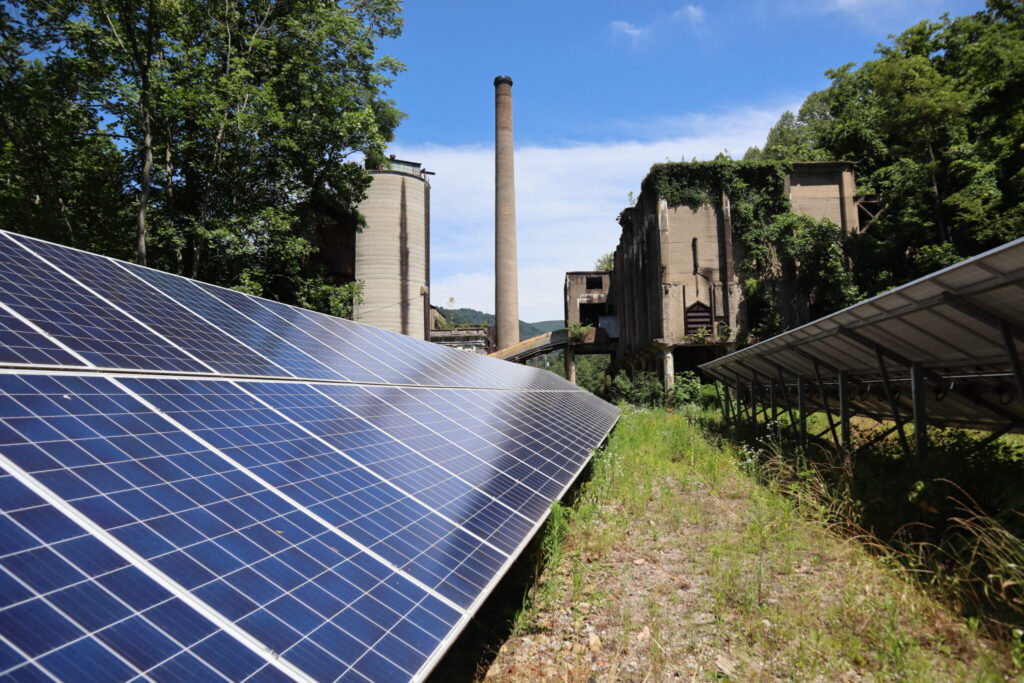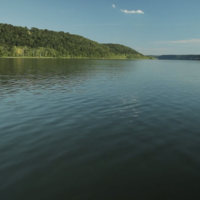The Environmental Protection Agency is awarding a more than $62 million grant to Kentucky’s state government to help expand residential solar energy to low-income households, one of dozens of awards given across the country as a part of a federal grant competition.

The “Solar for All” competition, funded through the Inflation Reduction Act, is allocating $7 billion through 60 grants to state governments, tribes and nonprofits that an EPA release estimates will be able “to deliver residential solar projects to over 900,000 households nationwide.”
According to the EPA, the Kentucky Energy and Environment Cabinet will use its $62,450,000 award to “expand access to low-income solar through financial assistance models and workforce development programming.”
The Kentucky Lantern previously reported the state’s application for the competition, which originally asked for $100 million, proposed to add residential solar and electricity storage systems to hundreds of “disaster recovery” homes across the state, increase access to community solar projects for low-income Kentuckians and create community college scholarships to build a workforce to deploy residential solar installations.
An Energy and Environment Cabinet spokesperson did not immediately respond to a request for comment about the award announcement.
Steve Ricketts, the board chair for the advocacy group Kentucky Solar Energy Society, told the Lantern that utility-scale solar installations are increasingly setting up shop in Kentucky and there’s growing interest from some cities in promoting solar energy.
But low-income Kentuckians have been less able to access solar, he said, which he hopes this grant funding can help solve.
“Until we get clean energy that includes everybody, and nobody’s left behind, we’re not doing a good job,” Ricketts said. “This is the piece of the puzzle we desperately needed.”
Ricketts said he hoped state officials would collaborate with “an extremely willing and motivated grassroots community who want them to succeed” with rolling out the grant funding.
Another “Solar for All” application, submitted as a collaboration between Louisville and some Eastern Kentucky counties, did not receive a grant. Louisville and Eastern Kentucky counties proposed to use $150 million to create a forgivable loan program for low-income households to add residential solar, create community centers powered by solar energy for use during natural disasters and also build the solar installation deployment workforce.
Sumedha Rao, the executive director of Louisville Metro Government’s Office of Sustainability, said her office still plans to utilize newly-made connections with leaders in Eastern Kentucky counties to go after future funding opportunities for solar energy.
“There was a lot of good ideas, good reasons to collaborate and strengths that both regions brought together that just makes sense,” Rao said. “So, I’m really grateful to have built those connections.”
Rao said she’s eager to partner with the state government and “help them deploy the funds equitably across the state through all of our communities.”
This article is republished under a Creative Commons license from Kentucky Lantern, which is part of States Newsroom, a network of news bureaus supported by grants and a coalition of donors as a 501c(3) public charity. Kentucky Lantern maintains editorial independence. Contact Editor Jamie Lucke for questions: info@kentuckylantern.com. Follow Kentucky Lantern on Facebook and Twitter.






